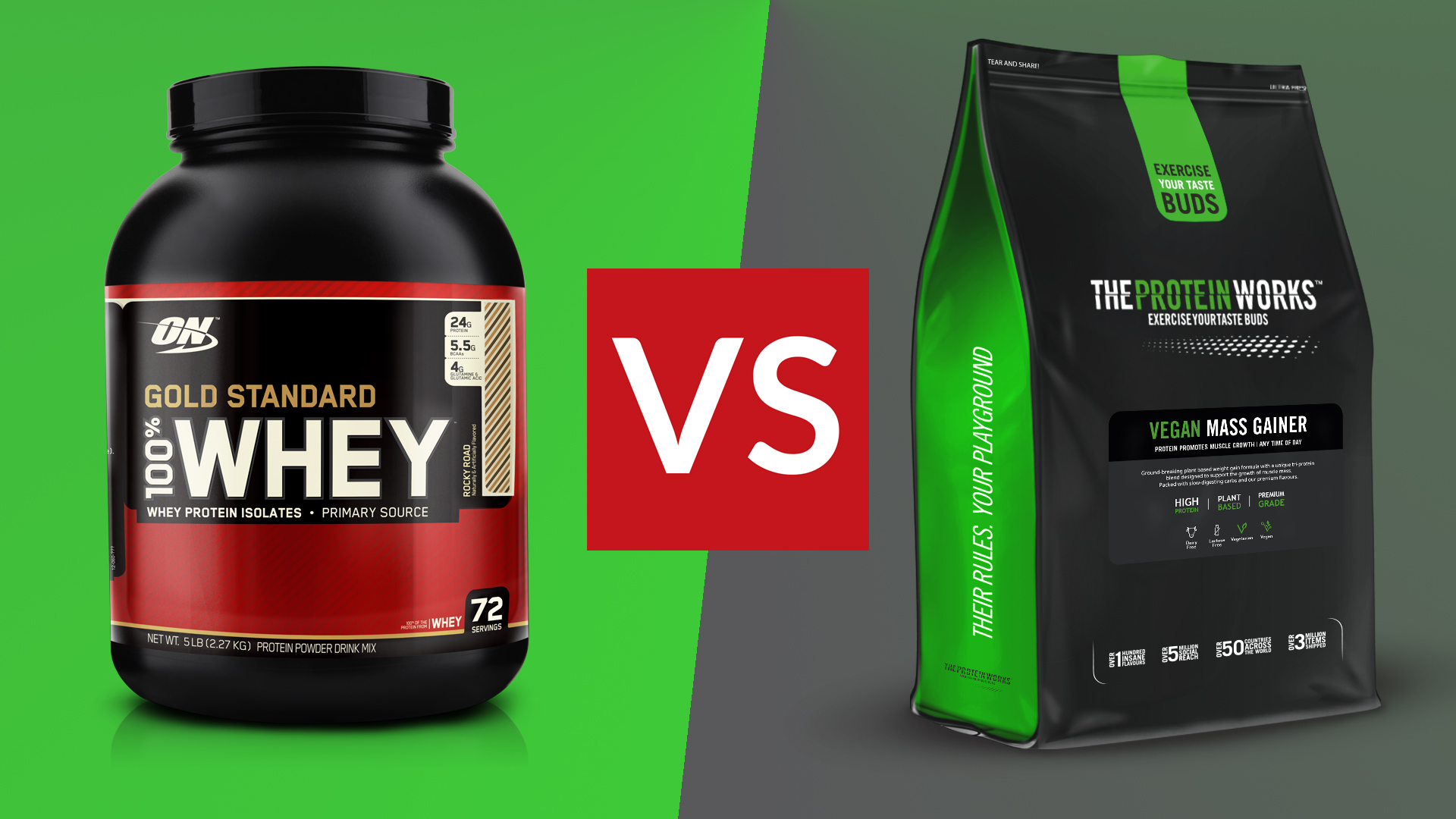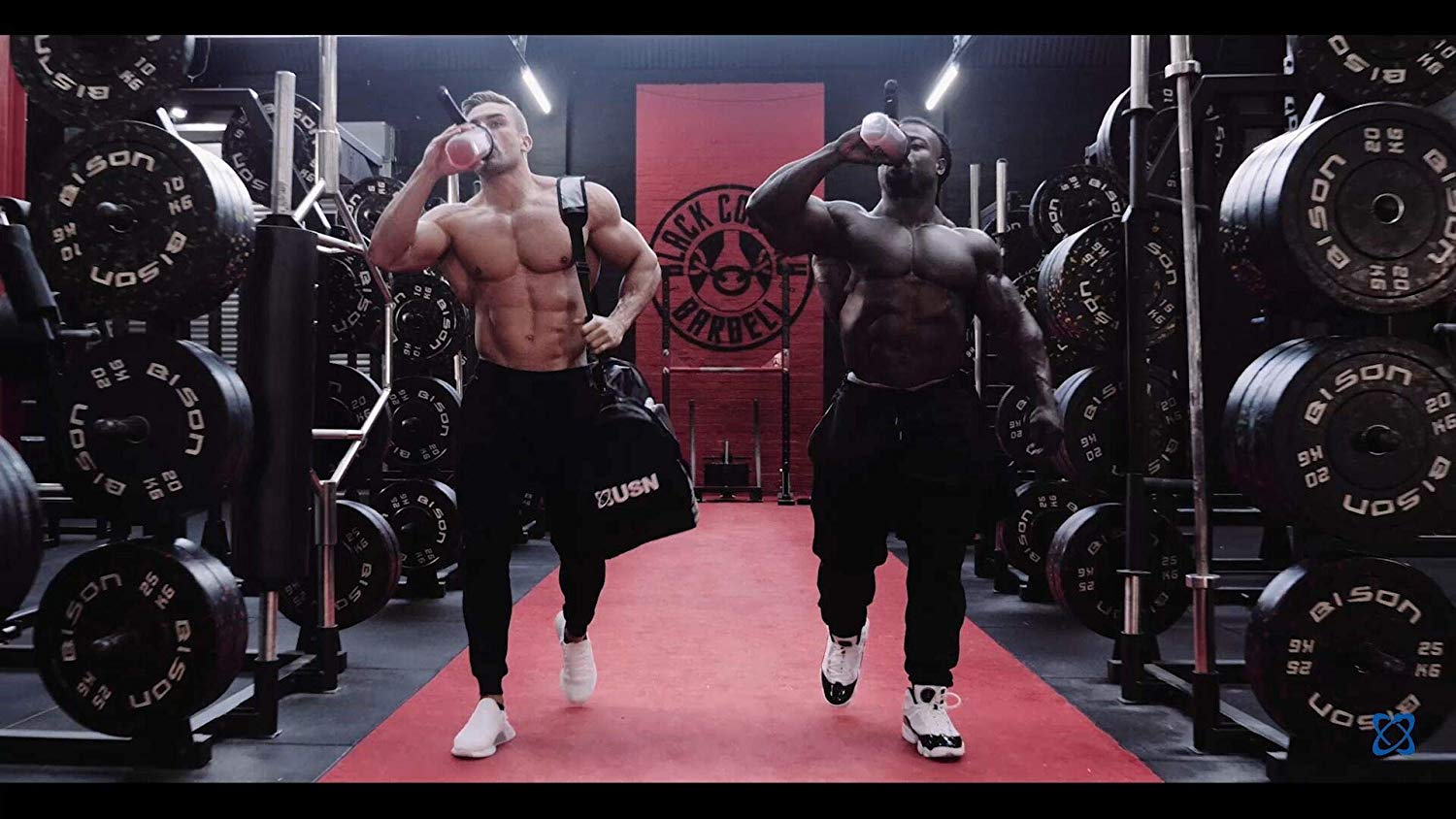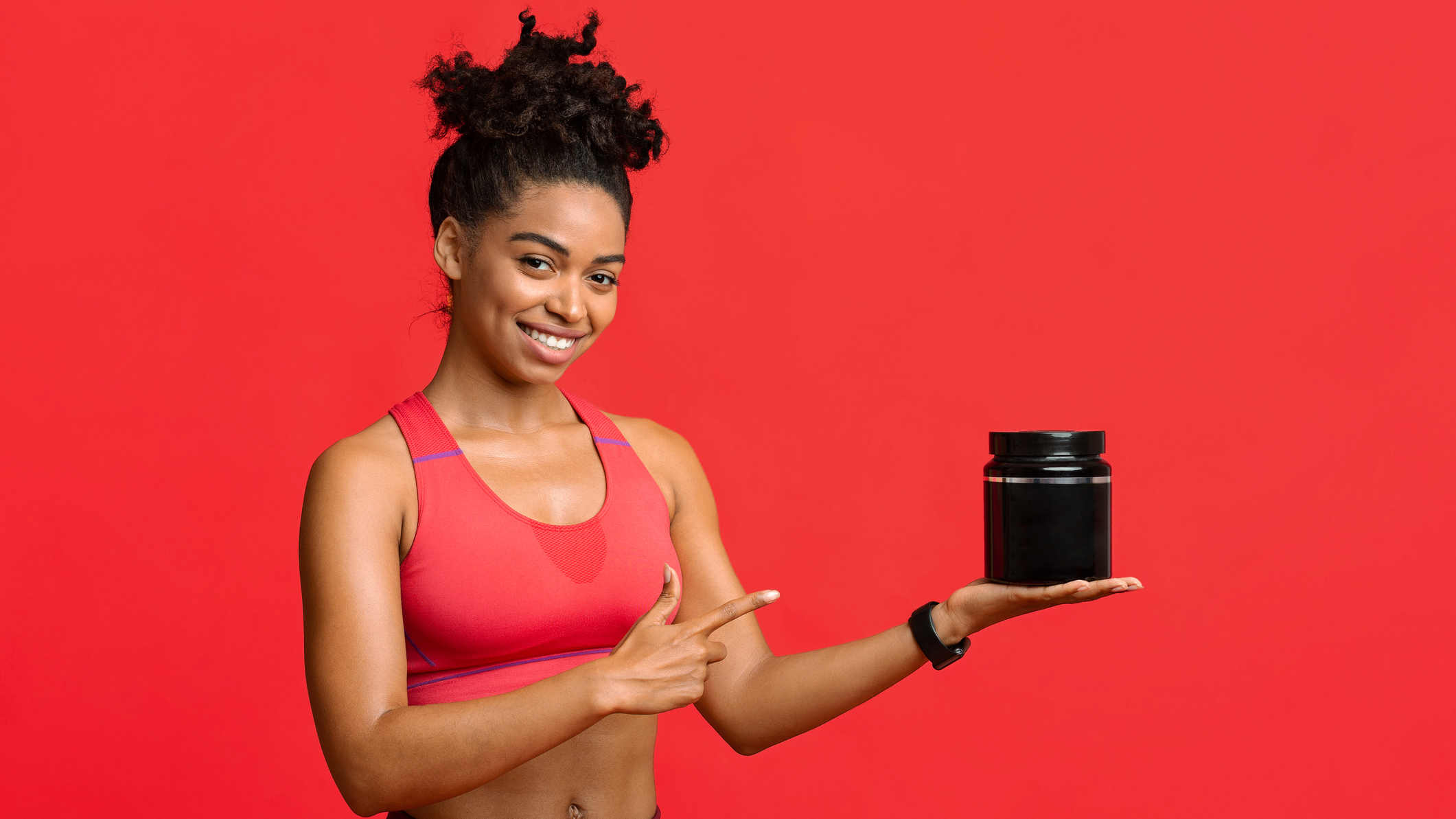Mass gainer vs protein powder: which is best for building muscle and putting on lean mass?
Mass gainer vs protein powder: which is best for quick gains?


Mass gainer vs protein powder: what are the benefits of taking either of these protein supplements?
All mass gainers are protein powders, but not all protein powders are mass gainers. Say what!? Different protein supplements, including the best protein powders and weight gainers, all provide a quick and convenient way to top up protein levels in your body. Still, as well as that, mass gainers can also boost calorie intake significantly, thanks to the sometimes insane amount of carbohydrates they contain.
But that's not the only difference between mass gainer and protein powder. These workout supplements cater to different types of people, and while one might aid weight loss, the other is more suited for people wanting to gain weight and build muscle faster. Apart from this obvious difference, there are a few key features you should know about before you go on a protein supplement shopping spree, as discussed in this mass gainer vs protein powder article.
Need some inspiration on how to use protein supplements? Here are 5 simple protein blender smoothies to supercharge recovery after exercise.

Mass gainer vs protein powder: nutritional info and how to use them
Standard whey and vegan protein powders are perfect for fine tuning your diet, although as always, it's best to cover most of your protein needs from whole foods and add a protein shake or two to the mix when you need a quick top up. Since protein powders almost only contain protein (and small amounts of carbs and fat) and can be concocted easily, they are the best after workouts to aid muscle protein synthesis.
Mass gainers usually combine protein powder with copious amounts of carbohydrates and some fat to create to ultimate weight gaining mixture. Calorie content varies from product to product, with some some weight gainers having over a 1,000 calories per serving.
The reason why mass gainers might work in helping you put on weight is because despite the industrial amount of calories they contain, they come in a liquid form which makes it easier to stomach them within a short amount of time. For comparison, Naked Nutrition's Naked Mass mass gainer contains 1,250 calories per a 321-gram serving; this equals to eating roughly 900 grams of white rice and 200 grams of lean chicken breast in one sitting.
Get all the latest news, reviews, deals and buying guides on gorgeous tech, home and active products from the T3 experts
One thing to keep in mind is that eating this many calories and especially carbs will most certainly spike insulin levels so make sure you don't exclusively use weight gainers to put on mass. And, most importantly, if your aim is to build muscle, you will also have to work out a lot to turn all that energy into muscle tissue.
Mass gainer vs protein powder: is mass gainer the same as protein powder?
As mentioned above, mass gainers are a special type of protein powder that contain large quantities of carbohydrates. So yes, to some degree, mass gainers are similar to protein powders but they definitely not the same.
Protein powders are more versatile than mass gainers as they can be used for both muscle building and weight loss, depending on your fitness goals. Both protein powders and mass gainers should be used as supplements, so not as the main source of protein but part of a healthy diet in order to maximise their effects.
Mass gainer vs protein powder: do you need mass gainer to put on mass?
The short answer is no, you don't need mass gainers to put on weight, you can just sit around all day and eat crisps watching Netflix (please don't do that). Weight gainers can help you put on weight easier if you're struggling to eat enough to keep up with your metabolism. Most people find it easier to drink a 1,000 calories than to eat the same amount. You wouldn't think that having three 16-ounce lattes a day will add 600 calories to your diet, would you? But they really do.
The same principles apply to mass gainers: having just one shake a day can effectively boost calorie intake and help you 'sneak in' more energy into your diet. Again, if your goal is to build muscle, you'll also need to workout to turn all that energy into muscles.
If you need to gain weight for medical reasons, please consult a medical professional before trying to you try any type of supplements.

Mass gainer vs protein powder: price and availability
Mass gainers and protein powders come in a lot of different sizes and can be bought in abundance both online and offline.
In the UK, we recommend getting your protein powder/mass gainer fix from MyProtein, the newly-rebranded bulk, The Organic Protein Co., The Plant Era, Foodspring, The Protein Works, SF Nutrition and/or Amazon.
For people living in the US, it would be a shame not to give Dioxyme, MyProtein or Naked Nutrition a try. There is always Walmart and Amazon as option too.
As mentioned in our protein powder vs protein bar article, many protein powder manufacturers now offer unique protein powder mix based on your DNA. NGX Nutrition has such a service, while others, such as Bio-Synergy, offer DNA and epigenetics test on which a free workout and meal planner is based to achieve one of the four 'dynamic health objectives' you might have. Bulk Labs also does a 'Diet & Nutrition' DNA test that offers 29 diet and nutrition insights based on your DNA. Needless to say, these DNA tests and DNA-based protein mixes are more expensive than your average bag of protein powder.

Matt Kollat is a journalist and content creator for T3.com and T3 Magazine, where he works as Active Editor. His areas of expertise include wearables, drones, action cameras, fitness equipment, nutrition and outdoor gear. He joined T3 in 2019.
His work has also appeared on TechRadar and Fit&Well, and he has collaborated with creators such as Garage Gym Reviews. Matt has served as a judge for multiple industry awards, including the ESSNAwards. When he isn’t running, cycling or testing new kit, he’s usually roaming the countryside with a camera or experimenting with new audio and video gear.